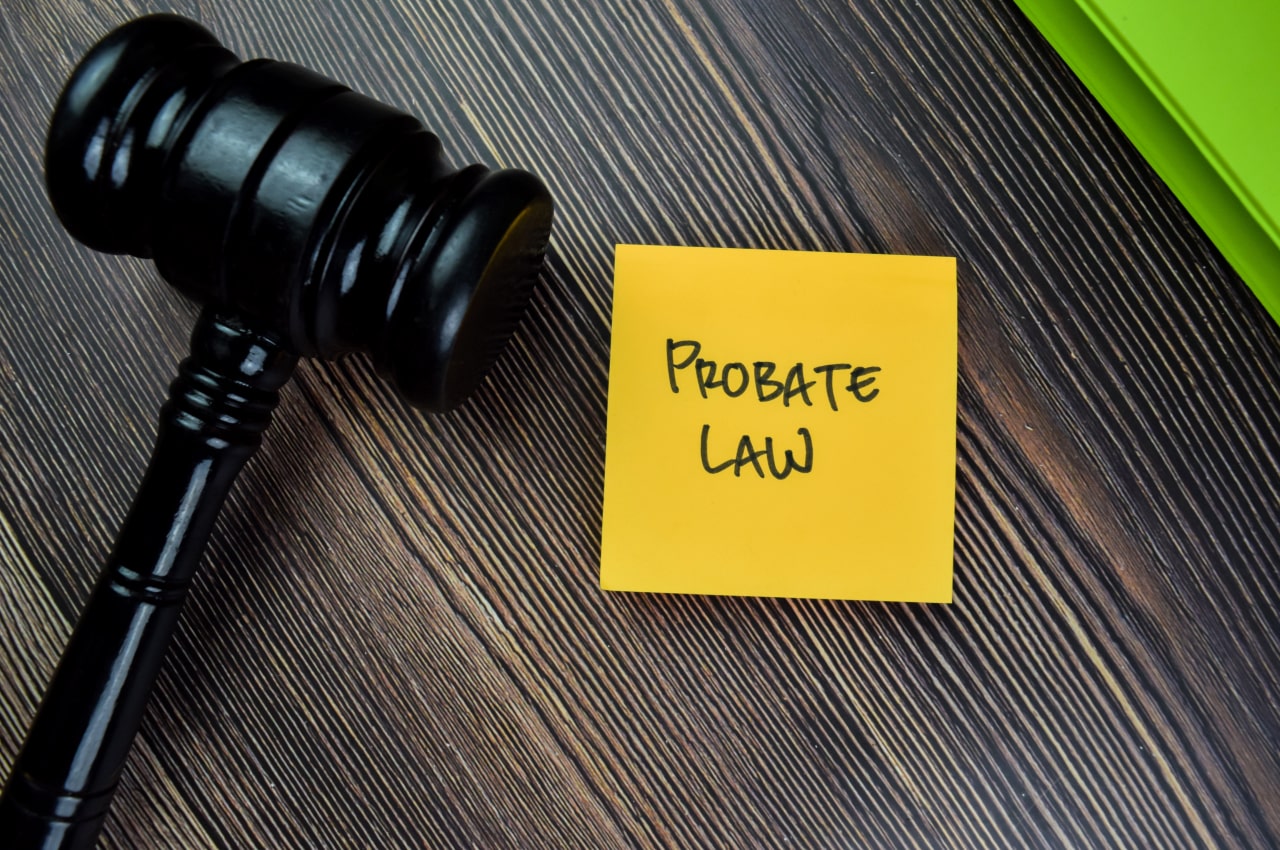The Things You Need To Know About Probate in Florida | The Estate Plan
The Things You Need To Know About Probate in Florida | The Estate Plan

Probate is the legal process of administering a deceased person’s estate. The process ensures that the decedent’s assets are distributed according to their will—or, if there is no will, according to Florida probate law. Probate involves verifying the will, paying debts, identifying probate assets, and distributing the remaining estate to beneficiaries.
However, the Florida probate process can be complicated, time-consuming, and subject to strict Florida probate rules. Navigating the court system, ensuring compliance with legal deadlines, and handling potential disputes require careful attention to detail. Without proper legal guidance, even small mistakes can lead to delays, unnecessary expenses, or legal challenges.
A probate attorney can help simplify this complex process. Whether you are a personal representative, an heir, or a concerned party, legal guidance ensures that probate proceedings run smoothly and in compliance with Florida probate law.

How the Probate Process Works in Florida
1. Filing a Petition for Administration
The Florida probate process begins with filing a Petition for Administration in the Florida probate court of the county where the deceased person resided. This petition must include supporting documents, such as the decedent’s will and death certificate.
Once the court reviews and approves the petition, it issues Letters of Administration, which formally appoint a personal representative (also known as an executor) to oversee the estate. This person is responsible for managing the probate estate, paying off debts, and distributing assets.
2. Identifying & Notifying Beneficiaries and Creditors
After the probate estate is opened, all beneficiaries and heirs are notified to ensure transparency and avoid future disputes. Additionally, the personal representative must inform creditors about the probate proceedings. Florida probate law requires that:
- Known creditors be notified directly via written notice.
- A Notice to Creditors be published in a local newspaper to alert any unknown creditors.
Failing to properly notify creditors within the required timeframe can lead to legal complications. A probate attorney can ensure this step is handled correctly and efficiently.
3. Identifying and Valuing Probate Assets
One of the most critical steps in the Florida probate process is identifying and valuing probate assets. The personal representative must create an inventory of the deceased person’s property, including:
- Real estate (if not jointly owned property)
- Bank accounts
- Personal property, such as jewelry, vehicles, and collectibles
- Investments and business interests
Some assets, like jointly owned property or assets with designated beneficiaries (e.g., life insurance policies), may not go through probate. However, all probate assets must be accounted for, valued, and, if necessary, appraised.
4. Settling Debts and Taxes
Before assets can be distributed, the personal representative must pay any outstanding debts, such as:
- Credit card balances
- Medical bills
- Estate taxes (if applicable)
If there are insufficient liquid assets in the estate, the personal representative may need to sell probate assets to cover these obligations. This can lead to disputes among heirs, making legal guidance crucial.
5. Submitting the Final Estate Accounting
The personal representative must submit a detailed estate accounting to the Florida probate court, outlining all:
- Assets collected
- Claims paid
- Fees and liabilities settled
If there are errors or missing documents, the court may reject the accounting, further delaying the process. Working with a probate attorney ensures accuracy and compliance with Florida probate rules.
6. Distributing Assets & Closing the Estate
Once all debts are settled and the court approves the final accounting, the personal representative distributes the remaining assets to beneficiaries. Finally, a petition for discharge is filed to officially close the probate estate. This step provides legal protection for the personal representative and prevents future claims against the estate.
What Issues Can Come Up in Probate?
While probate is meant to ensure a smooth transfer of a deceased person’s assets, complications often arise that can delay the process, increase costs, and create disputes among heirs. Understanding these potential issues can help you prepare and take proactive steps to minimize problems.
Will Contests & Disputes
One of the most common issues in Florida probate proceedings is a contested will. Heirs or other interested parties may challenge the validity of a will based on factors such as:
- Lack of capacity – Arguing that the testator (deceased person) was not of sound mind when they created the will.
- Undue influence – Claiming that someone exerted pressure on the testator to alter the will in their favor.
- Fraud or forgery – Alleging that the will was altered or created under false pretenses.
- Improper execution – Florida probate law requires that a will meet specific legal requirements to be valid.
Contesting a will can significantly delay probate and lead to costly litigation. A probate attorney can help defend or challenge a will, depending on your position in the dispute.
Disputes Over the Personal Representative
The personal representative (executor) is responsible for managing the estate, including paying debts, filing paperwork, and distributing probate assets. However, conflicts can arise if:
- The chosen personal representative is unwilling or unable to serve.
- Heirs or creditors believe the personal representative is mismanaging the estate.
- There is disagreement over who should be appointed if the deceased did not name a representative.
Florida probate courts may remove a personal representative if they fail to act in the best interest of the estate. Having an experienced Florida probate lawyer can help resolve these disputes efficiently.
Creditors & Unpaid Debts
Before beneficiaries can receive their inheritance, estate debts and claims must be settled. Issues arise when:
- The estate has more debts than assets (insolvency).
- Creditors file late claims, leading to legal challenges.
- Disagreements occur over which debts must be paid.
Florida probate rules establish strict deadlines for creditor claims. A probate attorney ensures that all debts are handled correctly and that the estate is not unfairly burdened by fraudulent or excessive claims.
Missing or Unidentified Assets
A personal representative must locate and account for all probate assets. However, issues arise when:
- The deceased failed to properly document all assets.
- There are hidden bank accounts, real estate, or investments that need to be tracked down.
- Valuable assets like artwork, antiques, or business interests require professional appraisal.
Failing to identify all probate assets can lead to legal disputes and complications in estate distribution. A probate attorney can assist in locating and valuing assets to ensure a proper estate inventory.
Tax Issues & Estate Taxes
Florida does not have a state-level estate tax, but federal estate taxes may apply if the estate exceeds certain thresholds. Issues may arise with:
- Failure to file required tax returns.
- Miscalculations leading to unexpected tax liabilities.
- Selling assets to cover estate taxes, causing disputes among heirs.
A probate lawyer can work with tax professionals to ensure the estate complies with all tax obligations and that heirs receive their rightful share.
Disputes Over Asset Distribution
Even with a valid will, disagreements may arise over how probate assets are distributed. Common disputes include:
- Heirs challenging their inheritance (e.g., one child receiving more than another).
- Blended family disputes involving children from different marriages.
- Personal property disagreements, especially regarding sentimental items.
If the deceased died without a will (intestate), Florida probate law dictates how the estate is distributed, which may not align with the deceased’s wishes. A probate attorney can help resolve these disputes and protect your inheritance rights.
Jointly Owned Property & Beneficiary Designations
Certain assets, such as jointly owned property, life insurance policies, and retirement accounts, pass outside of probate if a designated beneficiary is named. Issues arise when:
- Beneficiary designations are outdated (e.g., an ex-spouse is still listed).
- Jointly owned property disputes arise between co-owners.
- Unclear beneficiary designations lead to conflicts.
A probate lawyer can help clarify ownership issues and ensure that assets are transferred properly.
How a Probate Attorney Can Help You
Navigating the Florida probate process can be overwhelming, especially when unexpected issues arise. A probate lawyer can:
- Defend or challenge a will in court.
- Resolve disputes among heirs and beneficiaries.
- Ensure debts and taxes are handled correctly.
- Locate and properly value probate assets.
- Guide personal representatives to avoid costly mistakes.
Failing to follow Florida probate rules correctly can result in delays, penalties, or even lawsuits. Having an experienced attorney by your side saves time, reduces stress, and protects your interests.
Get Professional Probate Guidance from The Estate Plan
Dealing with probate after losing a loved one can be overwhelming, but you don’t have to go through it alone. Whether you’re managing an estate, handling jointly owned property, or concerned about estate taxes, our experienced probate attorneys at The Estate Plan are here to help.
- Ensure a smooth probate process
- Avoid costly mistakes & delays
- Protect your loved one’s legacy
Contact The Estate Plan today for a consultation, and let us guide you through the Florida probate process with confidence.
Have questions about how to get started on your estate plan or estate needs?
Have questions about how to get started
on your estate plan or estate needs?
Contact the experienced estate planning professionals at The Estate Plan
by calling us at (305) 677-8489.
Contact the experienced estate planning professionals at The Estate Plan by calling us at
(305) 677-8489.

